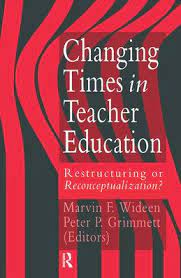Today, Nigeria joins the rest of the globe in celebrating this year’s World Teachers’ Day (WTD). The commemoration came into existence on October 5, 1994. By 1996, the United Nations Educational, Scientific and Cultural Organisation (UNESCO) and the International Labour Organisation (ILO) endorsed a recommendation concerning the status of teachers. The recommendation outlined the standards relating to education personnel policy including recruitment and initial training as well as continuing education of teachers, their employment and working conditions.
The WTD also aims to focus on appreciating, assessing and improving the standard of educators of this world and to provide an opportunity to consider issues relating to teachers and teaching. Annually, the UNESCO and the Education International (EI) have been joining forces to help give the world a better understanding of teachers and the role(s) they play in the development of teachers and the society in general.
The theme of this year’s Day which was marked in over 100 countries is “The Teachers We Need for the Education we Want: The Global Imperative to Reverse the Teacher Shortage.”
As Nigeria marks the Day, we are quick to state the age-long maxim which says, “No education system can rise above the quality of its teachers.’’ This aptly describes the declining quality of Nigeria’s education system. Worried by this trend, education experts have identified dearth of qualified manpower as one of the major challenges facing the nation’s education sector. This has consequently impeded delivery of quality service for decades.
The low rating of Nigerian teachers is known to all. Talking about qualified manpower, without exaggeration, most graduate teachers are not professionals and are inadequately exposed to teaching practice, with some of them deficient in communication skills.
Former executive secretary, National Universities Commission (NUC), Prof. Peter Okebukola, hit the bull’s eye when he observed a couple of years ago that the low rating of the teaching profession manifested in the scanty applications for admission into education faculties and colleges of education. According to Okebukola, the pervasive notion is that only “academic dregs make up the bulk of teachers, both in-service and practising”.
It is regrettable that teacher education which is the fulcrum of all educational attainments is being neglected by the government. Given that all areas of human endeavour require teacher education, it is difficult to understand why government at all levels has failed to pay adequate attention to this critical sector. Needless to state that when teacher education is not well managed, the tendency is that not only the educational system is affected but the nation’s socio-economic development is also imperiled.
Another recognisable factor was the scrapping of teachers’ training colleges which awarded Grade II certificate in the late 80s. They were replaced by colleges of education whose graduates are made to specialise in two or three subject areas, whereas the Grade II certificate holders had broad knowledge in virtually all subjects taught at the primary school level.
It is quite obvious that the dismal performances of students in public examinations, such as West African Examination Council (WAEC), National Examination Council (NECO) and the Joint Admissions and Matriculation Board (JAMB), are rooted in the weak foundation laid at the first point of entry into schools.
There is no gainsaying the fact that successive administrations have demonstrated lack of political will in adding the desired value to the nation’s education sector. But what appeared as light at the end of the tunnel was a declaration by the federal government to bring back teachers’ training colleges in its bid to professionalise the process at that level. The one-time Minister of Education, Malam Adamu Adamu, had once assured while speaking at the inauguration of the Kano State Education Promotion Committees in Kano in 2016 or thereabouts, that the Buhari-led administration was committed to the revitalisation of the education sector.
He said arrangements had reached an advanced stage for the review of the teacher education curriculum across the board. He also disclosed that government would soon introduce special scholarships to give opportunity to those interested in teaching to further their studies. However, long before the exit of the Buhari administration, the light at the end of the tunnel appeared to be that of a moving train that leaves darkness in its trail.
Presently, Nigeria is home to about 1.9m licensed teachers, whereas the population of school children and the number of schools had been on the increase, indicating that the shortages have reached a crisis point. The benchmark of 26 per cent of the annual budgets set by the UNESCO has become a myth in Nigeria, which is struggling to achieve 10 per cent, whereas smaller nations in Africa like Ghana, Cote d’Ivoire, Uganda and Morocco are hovering between 26 and 31 per cent.
The Tinbubu’s Renewed Hope Train should steam towards a better tomorrow for the Nigerian teachers without any further delay. It is an incontrovertible fact that the quality of a nation’s manpower is built on the foundation laid by the teachers of today.
Government at all levels should also wean itself of the wrong age-long notion that teachers’ reward is in heaven. The Holy Books have not told us that being a teacher is an automatic ticket to Paradise.




